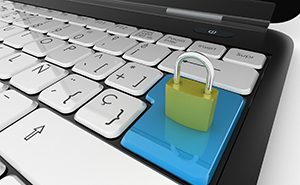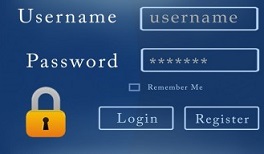Tips for enhancing your digital privacy
Companies are following your every move. When you have a cell phone, they are tracking what apps you use, where you go, who you talk to and more! Other smart devices listen to your conversations in your home, keep track of what you view on your TV, and report where you visit and what routes you take to get there. Even worse, the more you share the greater the chance a hacker gets this information.
Consider these tips to more actively protect yourself and your information.
The power of the opt out
Apple recently introduced an opt out feature on their iPhones. Historically, when you download a new app onto an iPhone, you have to manually opt out of sharing your device’s data. Now when you download a new app on your iPhone, you’ll be asked whether you want to opt in and allow the app to have access to your information.
So, if you are an iPhone user, start with the opt out and then deliberately select who you wish to give access to your information. And opt out does not have to be global. For instance, a direction function needs your location when you use it. But it does not need to be turned on all the time.
Actions:
- Leave opt-out as default on iPhones and set default to opt-out on other mobile phone brands.
- Review all apps and turn off tracking and data sharing.
- Actively turn off your phone if you do not wish to be tracked.
- Review all smart devices and select your opt out options. Include TVs and personal assistants in your review.
Protect your web browsing
 Companies love to keep tabs on your browsing habits. And it is not just limited to their own sites. They might spy on ALL your activity. They see every website you visit, monitor all your clicks, and track all social media likes and videos you view. They then use this information to determine what you see and read. In short, they control your world view, both in content and in what ads you see.
Companies love to keep tabs on your browsing habits. And it is not just limited to their own sites. They might spy on ALL your activity. They see every website you visit, monitor all your clicks, and track all social media likes and videos you view. They then use this information to determine what you see and read. In short, they control your world view, both in content and in what ads you see.
Actions:
- Actively use ad blockers such as AdBlock and uBlock.
- Turn off cookies and periodically empty your cache.
- Avoid downloading any and all extensions unless absolutely required.
Use best data protection practices
As the internet and smart devices evolve, so do the thieves that wish to steal your identity and your financial resources. So, keep up-to-date on best data protection practices.
Actions:
- Vary passwords and user IDs. Keep track of them outside of your computer.
- Keep operating systems and software up-to-date.
- Encrypt your emails and computer hard drive.
- Keep banking information off your cell phone.
- Back up all your devices remotely.
- Use current antivirus software.
- Monitor your credit reports for any suspicious activity.
- Confirm before opening suspicious emails or attachments.
Most importantly, stay informed. In the end, the burden of protecting your data always falls on you.


 You’re doing your passwords all wrong.
You’re doing your passwords all wrong.